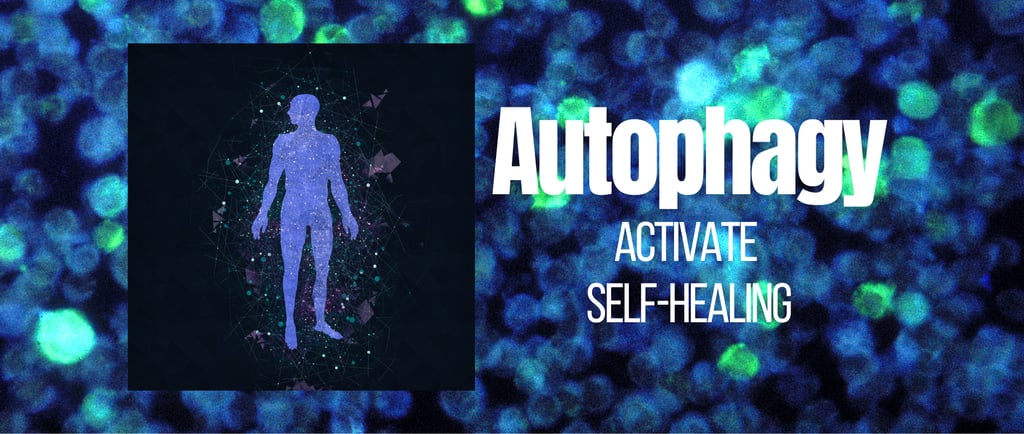Fasting: Unlocking the Power of Autophagy for Self Healing
Fasting is a powerful tool for enhancing health and longevity. By triggering autophagy, it enables the body to cleanse itself, repair damaged cells, and optimize overall function. Whether you choose intermittent fasting or extended fasting, this practice can be tailored to fit your unique needs and goals.


Unlocking the Power of Autophagy for Self Healing
Fasting is an age-old practice that has been deeply rooted in various cultures and religions. Beyond its spiritual significance, fasting has gained substantial attention in the scientific and health communities for its profound effects on the human body, particularly in triggering a process known as autophagy. This article explores the concept of fasting, its connection to autophagy, and how it can be effectively incorporated into our lives for holistic health and well-being.
Types of Fasting
Fasting refers to the voluntary abstention from food and, in some cases, drink, for a set period. It is not merely about starving oneself but rather a deliberate choice to allow the body to rest, rejuvenate, and heal. There are various types of fasting, such as:
Intermittent Fasting (IF): Alternating periods of eating and fasting, such as the popular 16:8 method, where one fasts for 16 hours and eats within an 8-hour window.
Extended Fasting: Going without food for 24 hours or more.
Time-Restricted Eating: Eating within a specific time frame each day, such as 12 hours or less.
Alternate-Day Fasting: Eating one day and fasting the next.
Each of these methods offers unique benefits and can be tailored to individual needs and goals.
The Science of Autophagy
Autophagy, derived from the Greek words "auto" (self) and "phagy" (eating), literally means "self-eating." It is a natural cellular process where the body cleans out damaged cells, toxins, and other debris to generate new, healthy cells. Think of it as the body's internal recycling system.
When the body senses a lack of food, it switches to survival mode. During this state, autophagy is activated as a mechanism to conserve resources and maintain cellular health. Cells break down their damaged or dysfunctional components, converting them into energy. This process not only improves cellular efficiency but also protects against aging and disease.
Benefits of fasting induced Autophagy
Anti-Aging Effects: By removing damaged cells and promoting cellular regeneration, autophagy helps slow the aging process, resulting in healthier skin, tissues, and organs.
Disease Prevention: Autophagy has been linked to reduced risks of chronic diseases like cancer, neurodegenerative disorders (e.g., Alzheimer's and Parkinson's), and heart disease.
Enhanced Immunity: By clearing out old immune cells, the body can produce more effective immune responses.
Improved Metabolism: Autophagy boosts energy levels by optimizing cellular function, which can aid in weight management and metabolic health.
Detoxification: It helps the body eliminate toxins and repair damage caused by oxidative stress.
Fasting as a Trigger for Autophagy
The relationship between fasting and autophagy is well-documented. When you fast, your body undergoes significant metabolic shifts, including a drop in insulin levels and an increase in glucagon and growth hormone levels. These hormonal changes create the perfect environment for autophagy to occur.
How Long Should You Fast to Induce Autophagy?
Research suggests that autophagy is significantly activated after 16 to 24 hours of fasting. While shorter fasting periods, like the 16:8 intermittent fasting method, can still offer health benefits, extended fasting may amplify the effects of autophagy. However, longer fasts should be approached with caution and preferably under medical supervision.
Intermittent Fasting: A Practical Approach
Intermittent fasting has emerged as one of the most accessible and sustainable ways to trigger autophagy. Here are some popular methods:
16:8 Method: Fast for 16 hours and eat within an 8-hour window. For example, you might eat between 12 PM and 8 PM and fast until noon the next day.
5:2 Method: Eat normally for five days and restrict calorie intake to 500-600 calories for two non-consecutive days.
Alternate-Day Fasting: Alternate between a day of normal eating and a day of fasting or severe calorie restriction.
These methods are flexible and can be adapted to fit different lifestyles and schedules.
Fasting and Nutrition: What to Eat During Eating Windows
While fasting triggers autophagy, the foods you consume during eating windows also play a vital role in supporting this process. Here are some dietary tips:
Focus on Whole Foods: Include fresh vegetables, fruits, whole grains, nuts, and seeds.
Incorporate Healthy Fats: Avocados, olive oil, and fatty fish provide essential nutrients and promote satiety.
Prioritize Protein: Lean protein sources like chicken, tofu, lentils, and eggs help maintain muscle mass during fasting.
Avoid Processed Foods: Minimize consumption of sugary, refined, and heavily processed foods.
Stay Hydrated: Drink plenty of water, herbal teas, or infused water to support detoxification.
Tips for Safe and Effective Fasting
Start Slowly: If you're new to fasting, begin with shorter fasting periods and gradually extend them.
Listen to Your Body: Pay attention to signs of hunger, fatigue, or dizziness, and adjust your fasting plan as needed.
Stay Active: Engage in light to moderate exercise during fasting periods to enhance metabolic benefits.
Plan Your Meals: Prepare nutrient-dense meals in advance to avoid overeating or making poor food choices.
Consult a Professional: Seek guidance from a health coach or nutritionist, especially if you have underlying health conditions.
Potential Challenges and How to Overcome Them
Fasting can be challenging, particularly for beginners. Here are some common obstacles and solutions:
Hunger Pangs: These often subside after the first few days as your body adapts. Drinking water or herbal tea can help.
Low Energy: Adjust fasting duration and ensure your eating windows include nutrient-rich meals.
Social Pressures: Communicate your goals with friends and family to gain support.
Overeating: Avoid binge eating after fasting by practicing mindful eating and portion control.
Who Should Avoid Fasting?
While fasting offers numerous benefits, it may not be suitable for everyone. People who should avoid fasting or consult a healthcare professional include:
Pregnant or breastfeeding women
Individuals with a history of eating disorders
Those with uncontrolled diabetes or other chronic conditions
Children and adolescents
Fasting is a powerful tool for enhancing health and longevity. By triggering autophagy, it enables the body to cleanse itself, repair damaged cells, and optimize overall function. Whether you choose intermittent fasting or extended fasting, this practice can be tailored to fit your unique needs and goals. As you embark on your fasting journey, remember that consistency, patience, and a balanced approach are key. By combining fasting with a nutrient-rich diet and a healthy lifestyle, you can unlock the full potential of your body’s innate healing mechanisms. Let fasting be your gateway to a healthier, more vibrant life. Explore its benefits, adapt it to your routine, and watch as it transforms your well-being from the inside out.
Fasting Beyond Autophagy
Fasting is not only a mechanism for autophagy but also a holistic approach to improving mental and emotional well-being. Many people report increased focus, clarity, and a sense of control over their eating habits. When combined with practices like mindfulness, yoga, or meditation, fasting can transform your relationship with food and promote a balanced lifestyle.
Suggested Reading/Bibliography
Fung, Jason. The Complete Guide to Fasting: Heal Your Body Through Intermittent, Alternate-Day, and Extended Fasting.
Longo, Valter. The Longevity Diet: Discover the New Science Behind Stem Cell Activation and Regeneration to Slow Aging, Fight Disease, and Optimize Weight.
Mattson, Mark P., et al. “Intermittent Metabolic Switching, Neuroplasticity and Brain Health.” Nature Reviews Neuroscience, 2018.
Chaudhary, Biswaroop Roy. Fasting Therapy: The Secret to Health and Longevity.
Panda, Satchin. The Circadian Code: Lose Weight, Supercharge Your Energy, and Transform Your Health from Morning to Midnight.
By embracing fasting as a regular practice, you can harness the body’s innate ability to heal, repair, and thrive. Remember, the journey to health is personal, and fasting is just one of many tools to support your well-being.
Nimisha Jyoti is a Clinical Nutritionist and Health Coach dedicated to empowering individuals to achieve optimal health through evidence-based practices. Explore more insights: https://www.nutrifytheworld.in/health-and-nutrition-blog.
Disclaimer:
The information provided on NutrifyTheWorld blog is for educational and informational purposes only. It is not intended as a substitute for professional medical advice, diagnosis, or treatment. Always seek the advice of your physician or other qualified health provider with any questions you may have regarding a medical condition. Never disregard professional medical advice or delay in seeking it because of something you have read on NutrifyTheWorld blog. The opinions expressed by the experts in this article are their own and do not necessarily reflect the views of NutrifyTheWorld or its affiliates. Product recommendations are based on research and personal experiences, but individual results may vary. Before using any product mentioned on NutrifyTheWorld blog, please read the label and consult with a healthcare professional to ensure it is suitable for your specific needs and conditions. We do not endorse or promote any specific brand or product mentioned on NutrifyTheWorld blog. Any reliance you place on the information provided is at your own risk. NutrifyTheWorld shall not be liable for any loss or damage arising from the use of information on its blog.


